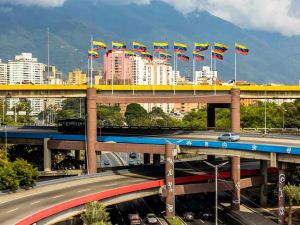By Dario Fabbri, geopolitical analyst and director of Domino magazine.
Water is becoming an increasingly scarce resource, once again a source of conflict between nations and powers around the world. The Earth’s surface is covered by seas and oceans, accounting for 72% of it, but it is, of course, non-potable water. Consequently, numerous geopolitical actors are currently engaged in long-standing battles over water supply.
Turkey, Syria, and Iraq are in competition for access to the Tigris and Euphrates rivers in historic Mesopotamia, especially after Ankara’s construction of the Southeastern Anatolia Project dam. Meanwhile, Laos and Cambodia are vying for control of the Mekong River.
Above all, water is the source of geopolitical conflict in northeastern Africa. Since Ethiopia began the construction of the Grand Ethiopian Renaissance Dam on the Blue Nile in 2011, it has the capacity to ensure the country’s water supply. With a power output of 6.45 gigawatts, it is the largest dam in Africa and the seventh-largest in the world.
From the outset, the dam immediately caused significant tensions between the Ethiopian government and those of Sudan and Egypt, which are situated along the river’s course. They risk being literally deprived of access to water if Addis Ababa were to close the dam. This is a particularly dire situation for two countries that receive nearly 100% of their water from the Nile and, according to the United Nations, could run out of water as early as 2025.
For Sudan, this represents the resurgence of exceedingly tragic memories, tied to the conflict in Darfur, which was triggered between 2003 and 2020 due to the dispute between Arab and non-Arab farmers for access to water (and pasture).
For Egypt, the matter becomes truly epochal. Over millennia, the country has always had complete control over the Nile, and now it finds itself dependent on the whims of Ethiopia. This dependence has rendered Egypt almost powerless, casting a shadow on its fragile rise to power. In recent years, there have been reprisals and mutual accusations between Addis Ababa and Cairo every time the Ethiopian government announced the ongoing dam-filling works, even leading to the threat of war.
So, this past September, Ethiopia announced that it had completed the dam-filling works, once again stirring concern in Cairo. This has become the primary geopolitical dispute over water in the world today. This comes at a time when Egypt is striving to increase its status, including its upcoming entry into BRICS, scheduled for January.
It’s a highly complex situation for the most populous Arab country, home to nearly a hundred million people. It is the primary cultural hub of the region, boasting one of the most powerful armies and engaged in controlling Cyrenaica and expanding its defensive depth. Yet, it finds itself under Ethiopian control when it comes to water supply. Among the primary effects of the recorded water scarcity on the planet, which is expected to fuel strategic disputes in the coming years, extending from Africa to Asia and the Americas, and even reaching Europe.
*As with all investing, financial instruments involve inherent risks, including loss of capital, market fluctuations and liquidity risk. Past performance is no guarantee of future results. It is important to consider your risk tolerance and investment objectives before proceeding.





